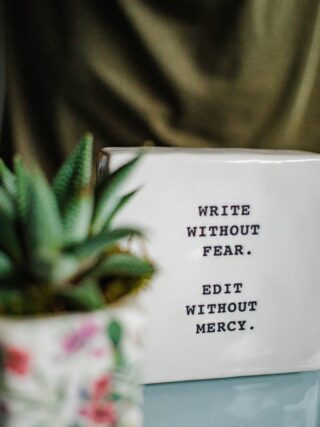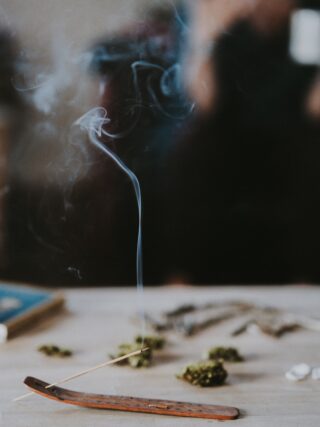On the eve of the call that would change my life, my then-husband had driven twelve miles into town to deposit our last two dollars into the bank account we’d just found out was forty-seven cents overdrawn.
We were living with family at the time after an abrupt and predatory rent increase by a skeezy, racist landlord. I was standing at what I didn’t know was the end of a traumatic intergenerational poverty cycle – which had started long before I was born, and was supposed to continue long after I was gone.
These cycles are, unfortunately, all-too common in this country, especially among families of color. They are not the fault of the people born into them, nor are they usually breakable by one person alone.
The lack of inherited wealth, the insurmountable debt we’re required to go into to start any semblance of a life, the rising and predatory cost of living, of education, of childcare…the list goes on and on, and only grows longer and more insurmountable the more intersectional your identity is.
At that time, I had been writing with the hope of publication for three years. Three years of working for free. It was my only option. I didn’t have the education or the skillset to command a wage that wouldn’t be entirely consumed by the cost of full-time childcare.
Two of those years were spent looking for an agent, knowing it was a milestone that would not bring me closer to financially supporting my family. I wrote three books in that time, and was twice offered the chance to revise and resubmit my manuscript for the person who would eventually go on to represent me. All while living in a single room with my husband and daughter. All while watching my debt pile up and credit score drop.
All while spending hours a day – on top of the time I spent writing, managing queries, and raising a three year old – in constant terror that this gamble I had staked everything on would amount to nothing.
I wasn’t the kind of person who was supposed to succeed in this business, I told myself. The evidence was all around me. All the hope, and trust, and faith my family had put into this venture would be wasted. I would fail them, and we’d be right back where we started.
After I signed with my agent, after an extensive round of revisions, it was finally time. To go on submission. To find out once and for all if my delusions of grandeur were going to pay off.
We got off to a promising start. An agency newsletter featured my book, and interest came in quickly. A lot of interest. I stayed up late reading the emails again and again when I couldn’t sleep, dreaming of the day when I’d be able to carry that advance check into the bank and push off the slavering beast of poverty that was always crouching over us waiting to pounce.
The car’s transmission was making a weird noise. I read the emails again. I lit every candle in the room. I asked that the book sell before the car broke down. I hoped it wasn’t too much to ask.
That first round of submission ended without an offer. Three months, and we were back to the drawing board. I spent the summer on a major revision. We swallowed our pride, and our shame, and went on food stamps. My daughter continued to grow, as did the strain on my marriage.
During the rewrite, my thoughts turned darker, all the optimism of those hopeful first weeks gone. I had written a book about radical, anti-government Latinx queer girls taking on the patriarchy.
I should have written something more commercial, I told myself. Something more easily digestible. I shouldn’t have been selfish enough to think I could write what I loved when I was responsible for the lives of the people I loved.
The second round of submission began. It should have been an exciting time, but depression had crept in around the edges of anything hopeful. I put on a brave face, but at night, instead of reading emails, I scrolled craigslist for any job that might offer childcare, something I might be able to do from home. I was confronted again and again by my lack of relevant experience, by the fact that I hadn’t been able to afford a college degree.
Some days, I had trouble getting out of bed at all. The mess in our one room piled up as my energy waned. Embarrassed by my inability to keep things together, I withdrew from friends, let phone calls and texts go unanswered until they finally stopped coming.
I started another book. One without so much of who I was sewn into it. One I thought people would relate to more.
When I heard the book that would become We Set the Dark on Fire was headed to acquisitions at a major house, I was terrified to hope. I almost didn’t tell my husband. Ten editors, all from major houses just like this one, had passed on the story.
Why should this one be any different?
We fought the night before, money again. He drove to the bank to deposit the two dollars. I brushed my daughter’s hair in our room while he was gone and told myself when the bad news came I would try one more time. I would be less selfish. I would write the story people wanted, instead of the one I was yearning to tell.
Yearning, after all, didn’t pay the bills.
I told myself I’d make my writing into whatever they wanted as long as they let us live. I promised. I lit more candles. I listened to Hamilton four times through. “I picked up a pen, I wrote my own deliverance.” I cried on the bathroom floor for most of the night. I made more promises, quietly, to anyone I thought might listen.
When the call came in, my daughter was eating a reheated tamale. I don’t know why I remember that. The phone rang. I was frozen. I almost couldn’t answer it.
When I did, I told myself I’d been through this before. The rejection. The death of hope. The part after, where you pick yourself up and make different promises and start again.
I would mourn this little book, though. This stubborn story torn right out of my heart that was too much me for anyone else to love.
But rejection wasn’t what I got. Not this time.
The minutes after are still hazy. I don’t remember what I said. I remember trying to process the grief I had expected and finding it didn’t fit. I remember thinking I had prepared for everything but good news.
I remember sinking to the floor, thinking next time I sank like this it would be to a different floor. To one I had earned with this story.
There have already been more calls and more happy tears and more sinking to various floors. But to me, We Set the Dark on Fire will forever be my deliverance book. The book that broke the cycle, that told me the world was ready for a book that was this much of me.
When you grow up in this cycle, there is no end to the psychological implications. To the poverty mentality that makes you feel you can never be secure enough. There will be more moments of fear, for me. But luckily, incredibly, there will be more books, too.
Tehlor Kay Mejia is an author and Oregon native. Her short fiction has appeared in the All Out and Toil & Trouble anthologies from Harlequin Teen. We Set the Dark on Fire is her first novel. You can find her on Twitter.
We dedicate a ton of time and energy into creating a platform here at 88 Cups of Tea that supports our Storytellers through encouragement, inspiration, and community. If you got some wonderful takeaways from this article and would love to show your appreciation, the best way would be through any of the two:
- Become a patron by making monthly contributions and receiving fun perks!
- Proudly rock the lovely things in our shop!
The most sincerest thank you for your love and support in helping us sustain a space that encourages learning, creativity, and growth.











